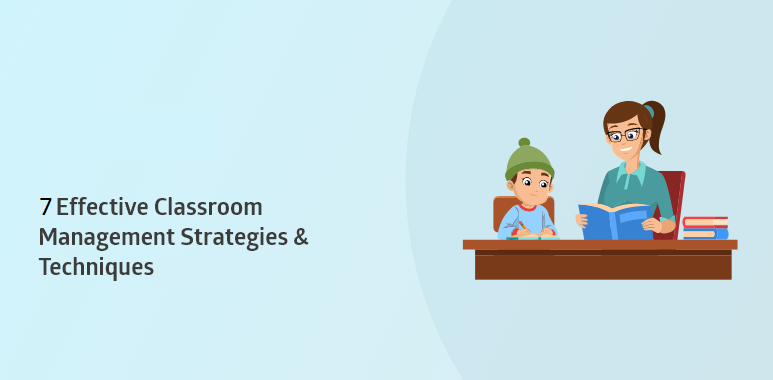How can I improve my classroom management skills?

Here are some tips for improving your classroom management skills:
- Set clear expectations: Establish clear rules and expectations for your classroom from the beginning of the school year. Communicate these expectations to your students, and be consistent in enforcing them.
- Build positive relationships: Take time to get to know your students and build positive relationships with them. This can help to create a positive classroom environment and improve student behavior.
- Use positive reinforcement: Reward students for positive behavior with praise, recognition, or other incentives. This can help to reinforce good behavior and encourage students to continue behaving appropriately.
- Address disruptive behavior promptly: When disruptive behavior occurs, address it promptly and consistently. Use a calm and assertive tone, and avoid getting into power struggles with students.
- Be organized and prepared: Being organized and prepared can help to minimize disruptions and keep your classroom running smoothly. Make sure you have all the materials you need for each lesson, and have a plan in place for managing transitions and unexpected situations.
- Use engaging teaching methods: Using engaging teaching methods, such as hands-on activities, group projects, or multimedia presentations, can help to keep students focused and minimize behavior problems.
- Seek professional development: Consider attending professional development workshops or seeking guidance from experienced teachers or administrators. This can help you to improve your classroom management skills and stay up-to-date on the latest teaching techniques and strategies.
What are the key skills needed for effective classroom management?

Some key skills needed for effective classroom management include:
- Clear communication: The ability to communicate expectations, rules, and consequences in a way that is easy for students to understand.
- Organization: Being able to plan and structure lessons in a way that maximizes learning and minimizes disruptions.
- Consistency: Being consistent in your approach to rules and consequences helps to establish a sense of fairness and predictability in the classroom.
- Positive reinforcement: Using praise and other positive feedback to motivate and encourage students can be an effective way to manage behavior.
- Ability to establish and enforce rules: It’s important to have clear rules and consequences in place and to be able to enforce them fairly and consistently.
- Classroom awareness: Being aware of what is happening in the classroom at all times is important for being able to respond to potential disruptions before they escalate.
- Flexibility: Being able to adapt your approach to different situations and individual students can help to create a positive and supportive classroom environment.
What is The Benefits of classroom management Skills?
Becoming proficient in classroom management skills can offer a number of benefits, including:
- Improved student behavior: Effective classroom management techniques can help to minimize disruptions and improve student behavior, creating a more positive and productive learning environment.
- Better learning outcomes: When students are engaged and focused on learning, they are more likely to achieve better learning outcomes, such as higher test scores and better retention of information.
- More efficient use of time: With effective classroom management strategies in place, teachers can maximize the amount of instructional time available, helping to ensure that students have ample opportunities to learn and practice new skills.
- Greater job satisfaction: Managing a classroom can be challenging, but it can also be highly rewarding. Teachers who develop strong classroom management skills may feel a greater sense of satisfaction and fulfillment in their work.
- Increased professional opportunities: Teachers who are skilled in classroom management may be viewed as more effective and competent by their peers and superiors, which can open up new opportunities for career advancement or leadership roles within the school or district.
Jobs and Salary of classroom management Skills
| Job Title | Median Annual Salary (INR) |
| Teacher | 360,000 |
| Head Teacher/Principal | 620,000 |
| Vice Principal | 540,000 |
| Education Coordinator | 450,000 |
| Curriculum Developer | 480,000 |
| Education Consultant | 540,000 |
| Instructional Designer | 500,000 |
| Special Education Teacher | 360,000 |
| School Counselor | 340,000 |
Classroom management Skills: FAQs
What are the key skills needed for effective classroom management?
Some key skills for effective classroom management include clear communication, organization, consistency, positive reinforcement, and the ability to establish and enforce rules and consequences.
Can classroom management skills be taught or are they innate?
While some people may be naturally more skilled at classroom management, many of the key strategies and techniques can be learned and improved through training, practice, and professional development.
How can I improve my classroom management skills?
Some ways to improve your classroom management skills include observing other teachers, seeking out professional development opportunities, seeking feedback from colleagues or mentors, and reflecting on your own teaching practices.
What are some common challenges that teachers face in managing their classrooms?
Some common challenges in managing a classroom include dealing with disruptive behavior, meeting the needs of diverse learners, managing time effectively, and balancing the needs of individual students with the needs of the group.
How can technology be used to support classroom management?
Technology can be used in a variety of ways to support classroom management, such as by providing tools for tracking student progress, facilitating communication with parents and students, and providing resources for differentiated instruction. However, it’s important to use technology in a way that enhances, rather than detracts from, face-to-face interaction and classroom culture.


